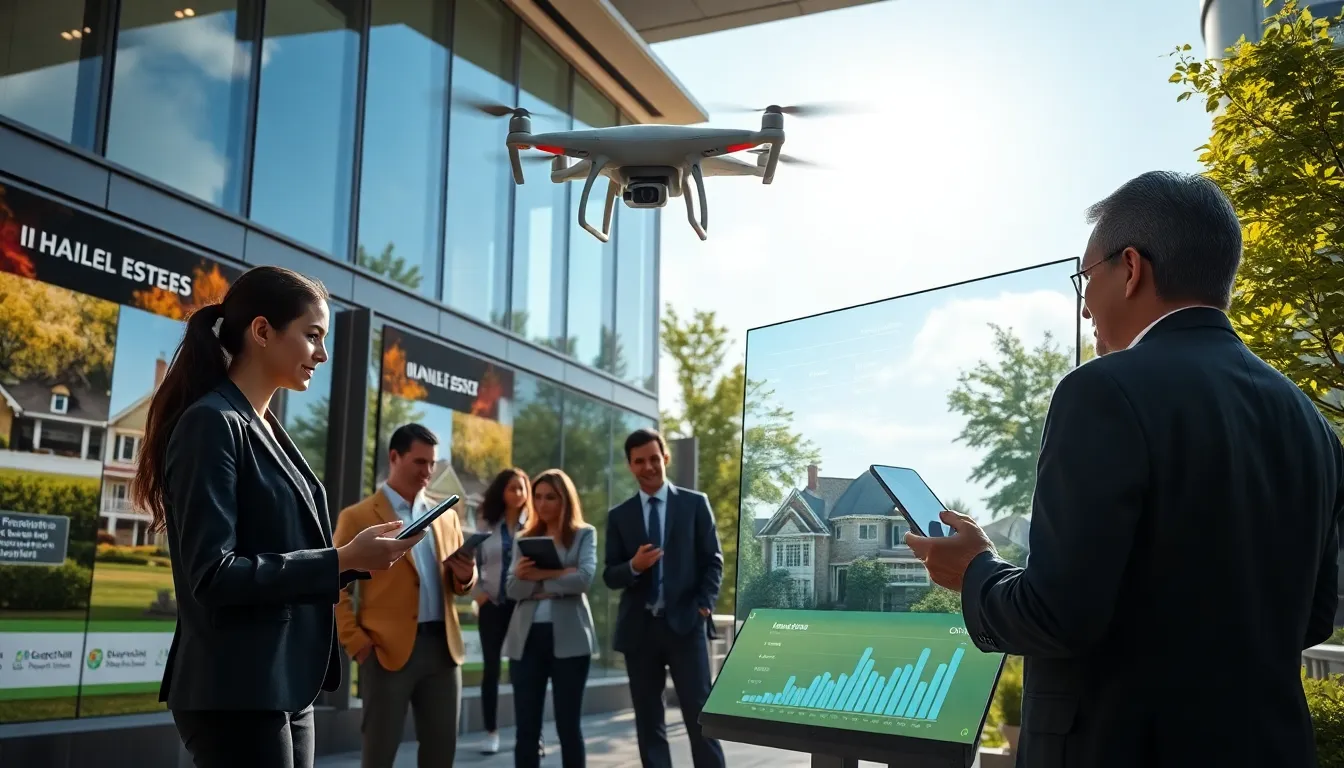In today’s rapidly evolving landscape, technology plays a pivotal role in transforming the real estate sector. HomeRocketRealty stands at the forefront of this revolution, leveraging modern solutions to enhance buyer experiences, streamline transactions, and improve market analysis. This article delves into the historical progression of real estate technology, explores cutting-edge innovations, and highlights how HomeRocketRealty is harnessing these advancements to redefine the industry.
Table of Contents
ToggleThe Evolution of Real Estate Technology

The journey of technology in real estate begins with rudimentary tools and gradually transitions to sophisticated digital platforms. Initially, the industry relied heavily on physical listings and mailing brochures. But, with the advent of the internet in the 1990s, property listings moved online, revolutionizing how buyers and sellers interacted.
As the 2000s approached, the rise of digital photography and virtual tours changed property marketing, allowing potential buyers to explore listings passionately and interactively. Today, prevalent technologies such as big data analytics, artificial intelligence (AI), and blockchain are reshaping the landscape, enhancing decision-making, and elevating customer experiences.
Emerging Technologies Shaping the Industry
Several emerging technologies are making substantial impacts on the real estate industry.
Artificial Intelligence (AI)
AI algorithms analyze vast amounts of data to predict market trends, assess property values, and personalize customer interactions. This capability not only aids agents in making informed recommendations but also enhances customer engagement.
Virtual Reality (VR) and Augmented Reality (AR)
VR and AR provide immersive property tours, allowing potential buyers to visualize homes from the comfort of their own space. This technology saves time and increases buyer interest significantly.
Blockchain Technology
Blockchain ensures a secure, transparent, and efficient transaction process. By enabling smart contracts, it reduces the need for intermediaries and minimizes fraud risks, leading to expedited transactions.
HomeRocketRealty’s Innovative Solutions
HomeRocketRealty is at the cutting edge of integrating these technologies into its operations. With its user-friendly platform, it utilizes AI-driven analytics to deliver tailor-made property recommendations that align with individual buyer preferences. Also, their adoption of VR technologies enables potential homeowners to embark on virtual property tours, giving them a realistic feel for spaces before scheduling in-person visits.
Also, HomeRocketRealty harnesses blockchain technology to streamline the buying and selling process. By utilizing smart contracts, the platform offers greater transparency and security, allowing clients to track transaction progress in real time. Its innovative approach not only enhances customer trust but accelerates transactions, providing a seamless experience for all parties involved.
Benefits of Modern Technology in Real Estate
The integration of modern technology into real estate brings numerous benefits, including:
- Enhanced Analysis: Advanced analytics tools help more accurate market assessments, enabling agents and buyers to make informed decisions based on current data.
- Improved Customer Engagement: Technology fosters a more interactive user experience through apps and online platforms, which can cater to client needs and preferences.
- Increased Accessibility: Online tools and virtual tours make real estate more accessible for buyers who may be unable to visit properties in person, expanding buyer pools.
- Faster Transactions: Automation and technology streamline processes, reducing transaction times and helping to close deals more efficiently.
Summarizing, modern technology enhances efficiency, engagement, and effectiveness within the real estate sector.
Challenges and Considerations in Adoption
While the advantages of adopting modern technology in real estate are substantial, several challenges persist.
Resistance to Change
Many traditional real estate professionals may resist adopting new technologies, preferring familiar methods. This resistance can slow down integration and hinder innovation efforts.
Data Privacy Concerns
As technology advances, so do risks related to data breaches and privacy violations. Real estate firms must prioritize robust security measures to protect sensitive client information.
Yet, with proper training and strategy, these challenges can be navigated successfully, allowing firms like HomeRocketRealty to thrive in a tech-driven marketplace.
The Future of Real Estate Technology
Looking ahead, the future of real estate technology is promising. Innovations will continue to emerge, enhancing the buying and selling processes.
Greater AI Integration
As AI capabilities evolve, they will soon approach predictive analytics, providing deeper insights into market trends, leading to even more tailored buyer experiences.
Drones and AI for Property Management
Drones will play a bigger role in property management, using AI for tasks such as aerial inspections, allowing for better property assessments and maintenance planning.
Continuous Blockchain Adoption
Blockchain technology will become more mainstream, leading to automated transactions, enhanced security, and greater transparency, eventually reducing costs for buyers and sellers alike.
Conclusion
To conclude, modern technology significantly impacts the real estate industry, with companies like HomeRocketRealty leading the charge by leveraging innovative solutions. By embracing tools such as AI, VR, and blockchain, they not only enhance the efficiency of real estate transactions but also prioritize customer satisfaction and security. As the landscape continues to evolve, the integration of technology will likely help an even more streamlined and engaging experience for the modern homebuyer.





